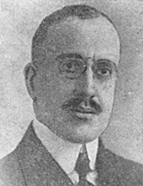

Naturally, this constant engagement in administrative, research, and teaching activities yielded significant bibliographic contributions. António Ferrão engaged with various topics, including the works of Pombal (1915, 1917, 1923, and 1932), Gomes Freire de Andrade (1917; 2nd ed. 1918; 1920, in which he related it to the virtues of the Portuguese race), the reform of secondary education (1915), and the University of Coimbra (1926). He also examined 18th-century literary censorship (1927) and addressed a plethora of Portuguese thinkers and scholars, including Maria Amália Vaz de Carvalho (1923), António Cândido (1924), and Teófilo Braga (1935). His studies encompassed the Academia das Ciências and celebrated figures such as Magalhães and Camões (1921 and 1930). Ferrão conducted various studies on archives, libraries, and the training of specialised personnel. He also expressed a keen interest in publishing diplomatic reports and popular culture, writing about these subjects in a coherent manner as a disseminator, pedagogue, and advocate for the advancement of mass education and national science. Little is known about his career from the 1940s to the 1960s, apart from the fact that he became a member of merit of the Academia das Ciências de Lisboa in 1953. This apparent decline in activity may have been due to friction with the Estado Novo regime.
Towards the end of his life, in 1960, António Ferrão published a booklet entitled O Prof. Joaquim de Carvalho e a sua Época [Professor Joaquim de Carvalho and His Times], with an illuminating subtitle: Desde as reformas de ensino universitário do governo provisório, em 1911 [Since the university education reforms of the provisional government in 1911.] The booklet reproduces the titles of a significant portion of the bibliography produced from 1933 onwards, including works on Gama Barros (1935) and various biographical or comparative studies, such as those on Teófilo Braga and Joaquim de Araújo (1934), Ribeiro Sanches and Soares de Barros (1936), and Camilo and Silva Pinto (1936). It notes a decline in new titles during the 1940s and after 1951.
